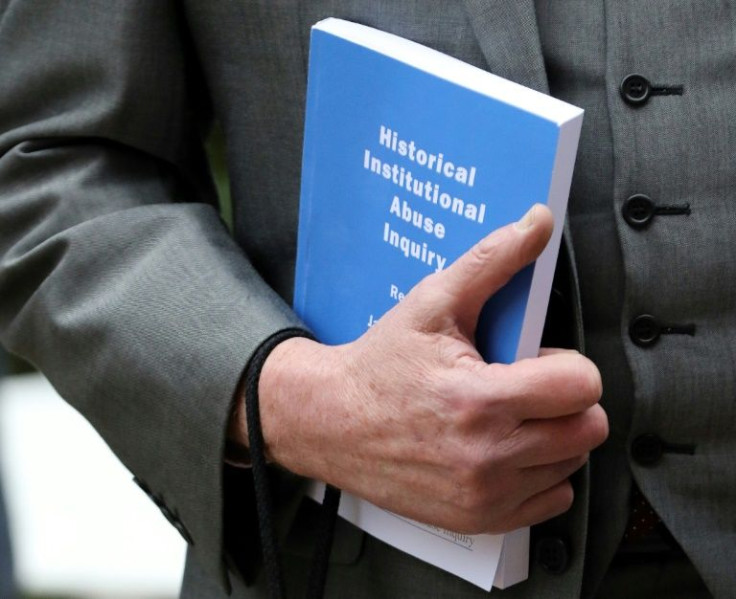Landmark Apology For Northern Ireland Abuse Survivors
Northern Ireland lawmakers fell silent on Friday as they remembered victims and survivors of decades of institutional abuse in children's homes, and offered them a formal public apology.
A four-year inquiry, which published its final report in 2017, found widespread mistreatment of children in state and church-run institutions across Northern Ireland.
One of its recommendations was a formal apology for the physical, sexual and emotional abuse they suffered, which the devolved assembly in Belfast heard was long overdue.
Education minister Michelle McIlveen told survivors, about 80 of whom were in the public gallery, that they had been failed by authorities.
"We are sorry that the state failed to protect you from abuse. We are sorry that the state did not protect you from those who abused their power," she said.
"We are sorry that you were not believed. The state has listened to you and the state believes you and we are truly sorry," McIlveen, from the pro-UK Democratic Unionist Party (DUP), added.
Apologies were also given by representatives of the four other main parties in the British province, as well as religious orders involved in running the homes.
Health minister Robin Swann, from the Ulster Unionist Party, said: "Systemic abuse should never have happened. We are truly sorry that it did happen and we commit fully to ensuring that it will never happen again."
The public apology had been thrown into doubt when the power-sharing government in Belfast collapsed last month due to DUP opposition to Brexit trading arrangements.
Margaret McGuckin, chairwoman of SAVIA (Survivors and Victims of Institutional Abuse), said it was a "political football" over the years but remained deeply important.
"There are many people who needed it and to hear: 'I'm sorry, it's not your fault'," she told AFP.
She compared the significance of the apology to that issued by the UK government after nearly 40 years for "Bloody Sunday", when troops shot dead 13 civil rights protestors in Londonderry in 1972.

McGuckin survived abuse at one of four homes run by the Catholic Sisters of Nazareth order, which attracted the highest number of complaints during the Historical Institutional Abuse inquiry.
Her brother, Kevin, has said he was sexually abused at another Catholic children's home from the age of 11 after the four children were taken into care.
A total of 493 people came forward to report abuses, with testimonies gathered in Northern Ireland, the rest of the UK, Ireland and as far away as Australia, where some children were sent.
Some children were separated from their siblings.
The inquiry report was particularly scathing over serial failures by police to investigate allegations and the role of the Catholic Church in protecting perpetrators.
It found "evidence of sexual, physical and emotional abuse, neglect and unacceptable practices" from 1922 to 1995 in most of the institutions it investigated.
These included 22 care homes run by state, church and charitable bodies.
On Wednesday, the UK government's Northern Ireland Secretary Brandon Lewis said it was "only right" that victims of historical institutional abuse would receive the formal apology.
"For too many years the voices of victims and their appeals for help went unheard," he said.
In neighbouring Ireland, the government in Dublin last year made an official state apology for state, church and society's failings in the running of homes for unmarried mothers and their children.
An inquiry there found that some 56,000 unmarried women and 57,000 children passed through such "mother and baby homes" over 76 years.
Many suffered appalling emotional abuse and the mortality rate at the institutions was "appallingly" high, it found.
© Copyright AFP 2024. All rights reserved.





















